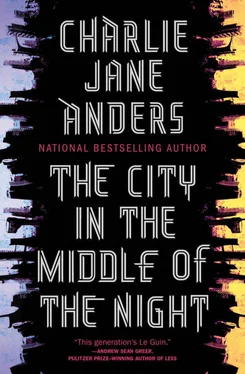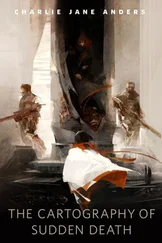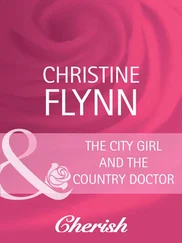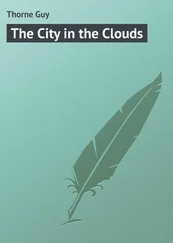But first we need to speak the language. I’ve been studying Argelan for ages, but I still can’t make any of the sounds, and I hate the bludgeoning syntax: the order in which you say the words makes them subject or object, past or present, and so on. No tenses, qualifiers, or distinctions. And then, in the empty space where they’ve removed all the useful parts of speech, Argelan substitutes a million different terms for relationships: lovers, parent/child, teacher/student, friends, some combination of those. Many of these relationship terms don’t translate to Xiosphanti—not to mention the strange thing that Yulya tried to teach me about on the road, the phrase that sounds like “Anchor-Banter.” You could be father/daughter, creditor/debtor, murderer/victim, but “Anchor-Banter” will replace or transcend any of those. Whatever that means.
Even the body language is different here: people toss their heads off to one side, meaning “yes,” and sort of roll their heads for “no,” and I can’t tell these gestures apart.
Ahmad wants us to memorize the crests of the Nine Families of Argelo so we can avoid messing with anyone who bears one of them. “You tangle with anyone wearing one of these emblems,” Ahmad says, pointing, “you’re basically dead.” Are the Nine Families the government? Bianca asks, and Ahmad just laughs.
Time passes, and we sleep sometimes, both of us breathing like swimmers. Sometimes I get up and wander to the washroom across the hall, then realize the rest of the household is sleeping, and I feel a surge of guilt, like I’m awake at the wrong time. Or I catch sight of a window without any shutters, and feel a jolt of worry, as if there are Curfew Patrols on the street, and they’ll see the uncovered panes and rush inside to grab us.
At some point, Ahmad starts organizing a proper funeral for Omar, and he invites Bianca and me. But I can tell he’s being polite, and it’s more of a family gathering, so we stay home.
Ahmad’s wife, Katrina, is a short round woman with spiky brown hair and pale skin who laughs constantly, and seems happy to have more people in the house even though she speaks almost no Xiosphanti. She gives us bowls of some kind of spicy fish and root vegetables, plus mugs of bitter tea. Their son Ali, who looks a bit younger than I was when I went to the Gymnasium, comes and goes without talking to us.
Bianca keeps asking questions: How do you know when to go to work here? How does Ahmad know when to pray, or go to a mosque? How do women keep track of their cycles? Ahmad’s answer to all the questions is the same: You make your own arrangements.
We get outdoors whenever we can, with Ahmad or Katrina, but I still don’t understand enough to distinguish between regular crowd behavior and a mob coming to tear me to shreds. People come too close and speak too fast, and I stiffen, and start seeing every angle at once, looking for a way out. Everything feels wrong, and I go from hungry to nauseous without any warning, and these streets all look the same and lead in circles.
I start helping Ahmad in the kitchen, learning how to slice carrots against the grain, and peel the thick shells off swamp crabs. I’ve almost gotten used to a diet with more dairy, fish, root vegetables, soybeans, and seaweed. Argelo has no farmwheels, but they have orchards and swamps, plus types of cloth that we don’t have in Xiosphant: muslin, silk, denim, and some polymers.
By now, Bianca and I are both wearing secondhand Argelan work clothes: loose pants, long-sleeved denim smocks, thick canvas belts. I pull my sleeve down to cover my spiky bracelet. I’m learning how to walk like an Argelan girl, swinging my arms and shuffling my feet, but my body carries all these memories from the Old Mother and the Sea of Murder, and they catch me off-balance. I wonder what it would be like to try to dress like my ancestors. Like, if I wore a Calgary jersey, like my father’s people, or a sari, CoolSuit, or embroidered silk jacket with long tapered sleeves, like my mother’s. I’ve been thinking about my mother more often lately, trying to imagine what she would think of all these strange sights and sounds, all this clutter.
Sometimes I see Bianca by my side and feel so grateful my heart almost breaks, as though I still can’t trust this much luck. But another part of me can’t stop worrying at the distance between us. I wonder if Argelan has a word for when you get what you’ve always wanted, but it’s still not right.
Soon I’m dreaming in Argelan (mostly about the same thing as always: glass-faced men forcing me to climb a freezing mountain). Bianca and I start speaking to each other in Argelan, which turns our conversations stilted but weirdly direct, because we just spit out nouns and verbs, like “I eat food.” When I try to slip back into Xiosphanti, to try to draw Bianca into talking about what happened back in Xiosphant, and the things she said to me when we first went to sleep here, she just keeps responding in Argelan. “Let’s keep practicing. I want to make the most of our time here.”
Whenever we go outside, I feel the bracelet pull harder in the direction of the night. I’m wasting time here, when I ought to be following this summons. But if I wander too far on these streets, I’ll never even find my way back to Ahmad’s apartment.
* * *
I’m sitting in the front of Ahmad’s restaurant, reading the same page in one of Ali’s old schoolbooks for the ninth time, and I look up to see Mouth towering over me. “Hi, Sophie,” she says in an easy drawl. “Want to take a walk? I’ll buy you some lemonade. The good stuff. I just want to talk about, you know, our friends in the night .”
I stare into the wide planes of her face. “You can’t tell anybody about what I did, or the fact that I can understand them. It’s complicated.” Almost the first words I’ve ever spoken to her.
“I won’t tell anyone, I swear. I just want to talk to you about it. Please.” I shrug and stand up. I need to talk to someone about the Gelet, and I can’t talk to Bianca without hearing more of her nonsense. Plus I could use a break from studying this ridiculous language.
Mouth decides to take me to one of the fancy drink stands in the Pit, which is a giant subterranean complex that the Mothership dug for Argelo before we lost contact with it. On the way down there, she tells me that Alyssa got herself shot, but she’s fine. “She only needs one more gunshot wound, and then she gets a free stuffed marmot.” While Mouth cracks jokes about Alyssa’s injury, her neck creases and her lip trembles.
“You should come visit Alyssa, though. She’d love to see you.” Mouth gives me one of those Argelan addresses with too many numbers and not enough words as she guides me down the riotous street.
Soon I’m sitting in a wicker basket chair, looking down into the Pit, with its perfect circles of railings going all the way down. People perch on the rails, selling junk or panhandling, while workers and shopkeepers shove past them. Mouth says if you watch long enough, you’ll see one of those rail-sitters fall into the gloomy depths.
“This lemonade costs twice as much as the last time I was in town.” Mouth sets down a pitcher of green liquid, full of brackish weeds. I still can’t get used to the idea that there’s only one type of money here—how do people know what to spend it on?
I take a sip of the lemonade, and the bitterness makes me choke at first, until I get the sweet aftertaste.
“We ought to be friends,” Mouth says in Xiosphanti. “I can help you learn Argelan. It’s a deceptively simple language. If you just go by the meaning of the words, you’ll miss half of what’s being said.”
“A good language for liars, then,” I mutter.
Читать дальше












